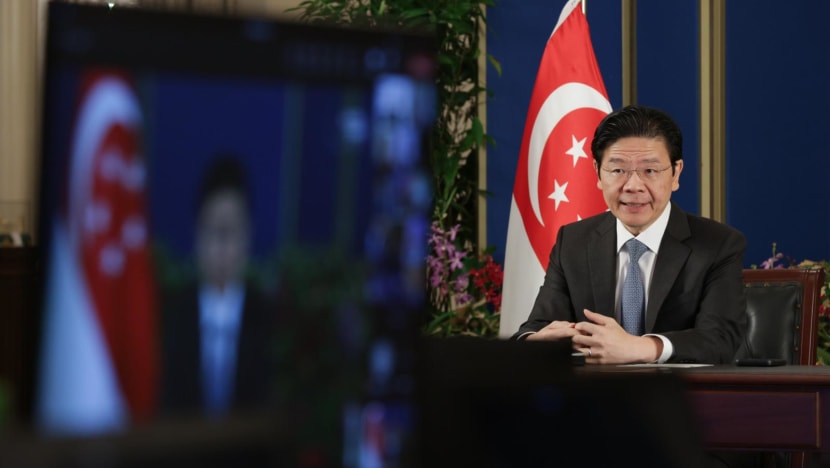AI safety, inclusivity and innovation must progress in tandem: PM Wong

Prime Minister Lawrence Wong at the virtual AI Seoul Summit 2024 Leaders’ Session on May 21, 2024. (Photo: Ministry of Communications and Information)

This audio is generated by an AI tool.
SINGAPORE: Prime Minister Lawrence Wong stressed the need for safety, inclusivity and innovation to move in tandem within artificial intelligence, as he called on countries to work together to harness the emerging technology as a force for good.
Mr Wong was speaking on Tuesday (May 21) at a virtual leaders’ meeting of the AI Seoul Summit, which was co-organised by South Korea and the UK.
The event aims to build upon the commitment to AI safety at last November's AI Safety Summit in the UK, but also extends the scope to cover other aspects of the global AI governance framework.
The key is to harness AI's benefits and reduce its harms and dangers at the same time, said Mr Wong, as he made three suggestions.
The first is to regulate AI without stifling potential innovation.
Calling for sensible regulatory parameters, he said: "Broadly classifying all generative AI as 'high-risk', or regulating AI systems on the condition that they must not cause any harm, can be overly restrictive and will inevitably lead to less innovation."
He said Singapore tries to strike the balance with laws to protect personal data and to tackle specific online criminal acts where AI might be used.
Additionally, the country has developed a safety testing toolkit called AI Verify, which he said will continue to be improved upon through collaboration with the open-source community.
It is also vital to monitor how AI is being used over time, and adapt and update regulatory approaches where needed.
Using the example of AI in finance, such as in risk management and fraud detection, he said that the AI models will not always be perfect. Still, financial regulators understand and can deal with these risks.
However, AI can also be used in areas where the risks are much higher, and where there can be catastrophic outcomes if things go wrong.
"These include AI embedded in military weapon systems, as well as the development of fully autonomous AI models, which run on their own without human inputs.
"One can envisage scenarios where the AI goes rogue or rivalry between countries leads to unintended consequences," he said.
This is why the world needs to consider carefully the norms and safety measures needed to ensure the technology is used safely and responsibly, he added.
Lastly, he emphasised the importance of international cooperation, as all countries have a shared interest in the development and use of AI.
Resources should be pooled together, including in the research community. The network of AI Safety Institutes, for instance, in Singapore, Korea, the UK and the US among others, should work together to address shared concerns.
"We should also encourage inter-operability of AI governance and security frameworks across countries, to facilitate closer collaboration," he said, adding that Singapore will also do its part.
Already, it is bilaterally working with like-minded countries, like it is doing with the US and others.
This can be done regionally through forums like ASEAN, and also at the United Nations, where Singapore leads the Forum of Small States with 108 members to promote greater understanding of AI.
On the opening day of the two-day summit, 16 of the world's leading artificial intelligence firms, including Microsoft, Amazon, Meta and IBM, made fresh commitments to develop the technology safely.













